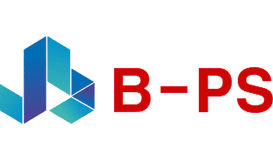预约演示
更新于:2025-05-07

Bio-Pharm Solutions Co. Ltd.
更新于:2025-05-07
概览
标签
神经系统疾病
其他疾病
肿瘤
小分子化药
疾病领域得分
一眼洞穿机构专注的疾病领域
暂无数据
技术平台
公司药物应用最多的技术
暂无数据
靶点
公司最常开发的靶点
暂无数据
| 排名前五的药物类型 | 数量 |
|---|---|
| 小分子化药 | 13 |
| 排名前五的靶点 | 数量 |
|---|---|
| mGluRs(代谢型谷氨酸受体) | 1 |
关联
18
项与 Bio-Pharm Solutions Co. Ltd. 相关的药物靶点 |
作用机制 mGluRs拮抗剂 |
非在研适应症 |
最高研发阶段临床2期 |
首次获批国家/地区- |
首次获批日期- |
靶点- |
作用机制- |
非在研适应症- |
最高研发阶段临床1期 |
首次获批国家/地区- |
首次获批日期- |
靶点- |
作用机制- |
在研适应症 |
非在研适应症- |
最高研发阶段临床前 |
首次获批国家/地区- |
首次获批日期- |
3
项与 Bio-Pharm Solutions Co. Ltd. 相关的临床试验KCT0008718
An open-label, single-dose, phase 1 clinical trial to investigate the absorption, metabolism and excretion of JBPOS0101 after oral administration of JBPOS0101 600 mg and 14C-labeled JBPOS0101 at a microdose in healthy adults
开始日期2023-08-08 |
申办/合作机构 |
KCT0008425
A Phase 1, Single-Dose, Double-Blind, Randomized, Placebo-Controlled, Dose-Escalating Study to Assess the Safety, Tolerability, and Pharmacokinetics of Orally Administered JBPOS0501 in Healthy Volunteers
开始日期2022-07-05 |
申办/合作机构 |
KCT0008374
A Phase I, Open-Label, Fixed-Sequence, Drug-Drug Interaction Study to Evaluate the Effect of JBPOS0101 on the Pharmacokinetics of Midazolam and the Interaction between Carbamazepine and JBPOS0101 in Healthy Subjects
开始日期2021-12-16 |
申办/合作机构 |
100 项与 Bio-Pharm Solutions Co. Ltd. 相关的临床结果
登录后查看更多信息
0 项与 Bio-Pharm Solutions Co. Ltd. 相关的专利(医药)
登录后查看更多信息
4
项与 Bio-Pharm Solutions Co. Ltd. 相关的文献(医药)2020-05-01·The Journal of Immunology
Development of inactivated subunit influenza vaccine endowing with IgA induction and protection against heterologous strain
作者: Lee, Yu-Sun ; Kim, Yun-Hee ; Bang, Yoo-Jin ; Park, Hyo-Jung ; Kim, Jae-Yong ; Nam, Jae-Hwan ; Park, Sang-In ; Hwang, Kyung-Ah ; Ko, Hae-Li ; Kim, Hun
2020-01-01·The Korean Journal of Physiology & Pharmacology4区 · 医学
Ezrin-radixin-moesin proteins are regulated by Akt-GSK3β signaling in the rat nucleus accumbens core
4区 · 医学
Article
作者: Kim, Jeong-Hoon ; Cai, Wen Ting ; Jang, Ju Kyong ; Kim, Wha Young
2019-07-03·NeuroReport4区 · 医学
JBPOS0101 attenuates amyloid-β accumulation and memory loss in a mouse model of Alzheimer’s disease
4区 · 医学
Article
作者: Park, Hyung Joon ; Choi, Won-Seok ; Jang, Ju Kyong ; Choi, Yong Moon
10
项与 Bio-Pharm Solutions Co. Ltd. 相关的新闻(医药)2022-11-12
来源:企业公告 整理:wangxinglai2004 近日,浙江医药股份有限公司发布公告,下属子公司浙江新码生物医药有限公司收到国家药品监督管理局核准签发的《药物临床试验批准通知书》,同意申报药物开展在HER2阳性胆道癌患者中有效性及安全性的Ⅱ期临床研究。 近日,安徽安科生物工程(集团)股份有限公司发布公告,公司收到国家药品监督管理局下发的《药物临床试验批准通知书》,同意申报药物HK010注射液开展晚期恶性肿瘤临床试验。 近日,上海医药集团股份有限公司发布公告,公司收到国家药品监督管理局下发的《药物临床试验批准通知书》,同意申报药物开展原发性帕金森病患者的单药治疗临床试验。浙江医药一、药品基本情况 药物名称:注射用重组人源化抗HER2单抗-AS269偶联物(ARX788)剂型:注射剂 规格:50 mg/瓶 注册分类:1类生物制品 受理号:CXSL2200381申请人:浙江新码生物医药有限公司 审批结论:经审查,2022年8月18日受理的注射用重组人源化抗HER2单抗-AS269偶联物(ARX788)符合药品注册的有关要求,同意本品开展临床试验,
具体为:评价重组人源化抗HER2单抗-AS269偶联物在HER2阳性胆道癌患者中有效性及安全性的Ⅱ期临床研究。二、药品的其他相关情况注射用重组人源化抗HER2单抗-AS269偶联物(ARX788)是公司于2013年6
月14日与美国Ambrx公司签署《合作开发和许可协议》合作研发的新一代单克隆抗体偶联药物,用于治疗HER2阳性晚期乳腺癌和胃癌等,属于创新生物技术药物。截至2022 年9月30日,公司 ARX788 项目已累计投入研发费用6.41亿元人民币。目前国内外已上市的靶向HER2治疗用药包括曲妥珠单抗、ado-trastuzumab emtansine、fam-trastuzumab
deruxtecan和维迪西妥单抗。其中曲妥珠单抗、ado-trastuzumab
emtansine和维迪西妥单抗国内已上市;fam-trastuzumab deruxtecan 于2022年3月在国内递交了上市申请。目前 fam-trastuzumab deruxtecan 和维迪西妥单抗正在开展胆道癌方面的临床研究,尚无靶向HER2的胆道癌药物上市。安科生物一、药品基本情况 1、药品名称:HK010注射液2、受理号:CXSL2200396国 3、申请人:安徽安科生物工程(集团)股份有限公司、合肥瀚科迈博生物技术有限公司 4、审查结论:根据《中华人民共和国药品管理法》及有关规定,经审查,
2022年8月22日受理的HK010注射液符合药品注册的有关要求,同意本品在晚期恶性肿瘤开展临床试验。 二、药品相关情况HK010注射液是公司拥有自主知识产权的新型PD-L1/4-1BB双特异性抗体, 拟定适应症为晚期恶性肿瘤。PD-L1/4-1BB 的双特异性抗体HK010既能阻断免疫抑制性的PD-L1/PD-1,
又条件性激活 4-1BB 共刺激信号,从而达到解除免疫抑制和激活免疫系统的双重作用,在增强药效的同时提高安全性,是一款具有潜力的抗肿瘤双特异性抗体。 目前,国内外尚无 PD-L1/4-1BB 双特异性抗体上市,相关产品在国内外均
处于临床研究阶段。上海医药一、药品基本情况 药物名称:甲磺酸雷沙吉兰舌下膜 剂型:膜剂 规格:0.5mg拟用适应症:原发性帕金森病患者的单药治疗,以及伴有剂末波动患者的联
合治疗(与左旋多巴合用) 治疗领域:神经系统 注册分类:化学药品2.2类 申请事项:境内生产药品注册临床试验 申请人:上海上药中西制药有限公司 申报阶段:临床试验 申报受理号:CXHL2200579通知书编号:2022LP01749结论:根据《中华人民共和国药品管理法》及有关规定,经审查,甲磺酸雷
沙吉兰舌下膜符合药品注册的有关要求,同意本品开展临床试验。二、药品相关情况甲磺酸雷沙吉兰作为一种新型的B型单胺氧化酶(MAO-B)抑制剂,通过抑制MAO-B活性,阻止脑中内外源性多巴胺的分解,增加突触间隙多巴胺的水
平,从而有效改善各种帕金森疾病症状。舌下膜剂通过口腔黏膜吸收,可避免首过效应,具有给药方便、患者顺应性好、剂量准确等优点。 2020年8月,该项目的临床试验申请获得国家药监局正式受理。近日,该项目获得国家药监局核准签发《药物临床试验批准通知书》,同意按照已提交的
方案开展临床试验。 截至本公告披露日,该项目已累计投入研发费用约439万元人民币。往期信息人福医药一、药品基本情况 药物名称:盐酸纳布啡注射液 剂型:注射剂 申请事项:临床 注册分类:化学药品2.4类 申请人:宜昌人福药业有限责任公司 审批结论:根据《中华人民共和国药品管理法》及有关规定,经审查,2022 年7月15日受理的盐酸纳布啡注射液符合药品注册的有关要求,同意本品开展重症监护病房患者的镇痛(ICU镇痛)临床试验。二、药品相关情况盐酸纳布啡注射液广泛应用于缓解中至重度疼痛,也可作为复合麻醉时麻醉诱 导。盐酸纳布啡注射液于2013年获批上市,获批适应症为“作为镇痛药用于复合麻 醉时的麻醉诱导”,本次拟增加适应症为“用于重症监护病房患者的镇痛(ICU镇痛)”,目前盐酸纳布啡注射液在全球范围内均无ICU镇痛相关适应症获批上市。2021年,宜昌人福盐酸纳布啡注射液销售额约为5.9亿元人民币。截至目前,宜昌人福该项目累计投入约为300万元人民币。根据我国药品注册相关的法律法规要求,宜昌人福在收到上述药物临床试验通知书后,将着手启动药物的临床研究相关工作,待完成临床研究后,将向国家药品监督管理局递交临床试验数据及相关资料,申报生产上市。振东制药一、药品基本情况 名称:安喹利司片剂型:片剂受理号:CXHL2200448注册分类:化学药品 1 类通知书编号:2022LP01422二、药品的其他相关情况安喹利司片是针对胃癌适应症研发的PI3K/mTOR双靶点抑制剂,是1类小分子创新药物,与同类品种相比,具有下列创新点:PI3K/mTOR双靶点抑制剂具有瘤谱广、药效强、生物标记物明确等特点; 结构新颖,已申请专利;体内外抗肿瘤活性研究中对胃癌特别敏感,在胃癌异体移植瘤体内试验中可以引起肿瘤的缩小,并且在部分裸鼠上肿瘤完全消失;作用机制明确,不良反应可预测。综合评价安喹利司片的药效学,药代特征及安全性,安喹利司片具有良好的成药性,研发前景良好。京新药业一、药品基本情况 1、药品名称:JBPOS0101胶囊 受理号:CXHL2200461、CXHL2200462、CXHL2200463申请事项:临床试验 申请人:浙江京新药业股份有限公司 审批结论:根据《中华人民共和国药品管理法》及有关规定,经审查,2022年6月30日受理的JBPOS0101胶囊符合药品注册的有关要求,同意按照提交的方案开展用于治疗成人局灶性癫痫的临床试验。 2、药品名称:JX7002 注射液 受理号:CXSL2200264申请事项:临床试验 申请人:浙江京新药业股份有限公司申请适应症:本品用于治疗高胆固醇血症和混合型高脂血症 审批结论:根据《中华人民共和国药品管理法》及有关规定,经审查,2022 年6月22日受理的JX7002注射液符合药品注册的有关要求,同意开展临床试验。二、药品的其他相关情况JBPOS0101通过结合代谢型谷氨酸受体减少神经元放电,属于First in Class(全球首创),目前全球范围内无同靶点药物上市。2021年8月,公司与韩国 Bio-Pharm Solutions Co. Ltd.签署《许可、开发、商业化和供应协议》, 以首付款500万美元、最高不超过3500万美元的里程碑付款及按产品销售总额提成的特许权使用费交易引进JBPOS0101项目,具体内容详见公司于2021年8月27日在《证券时报》、《中国证券报》和巨潮资讯网 http://www.cninfo.com.cn 上刊登的 2021045号公告。目前公司已完成相关资料接收和整理,并于2022年6月向国家药监局申请临床试验。截至本公告披露日,公司在JBPOS0101项目上已累计投入约4000万元。JX7002 注射液作用于PCSK9靶点治疗高胆固醇血症和混合型高脂血症,属于1 类创新生物药。2017年2月,公司与英国Kymab公司签署合作协议,由Kymab开发研究确定开发候选序列,由公司继续进行后续的上市前研究,目前已完成临床前的药学及非临床研究,并于2022年6月向国家药监局申请临床试验。截至本公告披露日,公司在JX7002注射液项目上已累计投入约7000万元。科伦药业一、药品基本情况 药品名称:注射用SKB264剂型:注射剂 规格:200 mg/瓶 注册分类:治疗用生物制品1类 申请人:四川科伦博泰生物医药股份有限公司 受理号:CXSL2200265审评结论:根据《中华人民共和国药品管理法》及有关规定,经审查,2022年6月13日受理的注射用SKB264符合药品注册的有关要求,同意本次临床试验申请,具体为:一项SKB264单药或联合帕博利珠单抗加或不加化疗治疗晚期或转移性非小细胞肺癌患者的II期临床研究方案。二、药品的其他相关情况SKB264(MK2870)为科伦博泰拥有自主知识产权的靶向TROP2的人源化单克隆 抗体、可酶促裂解的Linker连接着新型拓扑异构酶I抑制剂组合而成的抗体-偶联 药物(TROP2-ADC),目前正在中美开展针对多个瘤种的II期临床试验,已获得阶段性临床数据。 帕博利珠单抗为MSD的上市药物,是一种人源化单克隆抗体,作为程序性死亡受体1(PD-1)阻断剂,能结合PD-1并解除PD-1对T细胞的抑制作用,从而杀伤 肿瘤细胞。已获批用于多种肿瘤的治疗,包括非小细胞肺癌。 科伦博泰将按照国家药品监督管理局签发的临床试验通知书的要求,组织实施注射用SKB264单药或联合帕博利珠单抗加或不加化疗治疗晚期或转移性非小细胞肺癌的II期临床试验。迈威生物一、药品基本情况 药品名称:6MW3511 注射液 申请事项:境内生产药品注册临床试验 临床试验通知书编号:2022LP01327申请人:迈威(上海)生物科技股份有限公司 审批结论:根据《中华人民共和国药品管理法》及有关规定,经审查,2022年 6月16日受理的6MW3511注射液符合药品注册的有关要求,同意按照提交的方案开展晚期实体瘤的临床试验。二、药品的其他相关情况6MW3511是公司利用人源化抗 PD-L1 的纳米抗体连接TGF-β RII 突变体自主构建的双功能基团药物蛋白。该突变体设计有利于维持全分子的稳定性,降低天然 TGF-β RII基团在生产过程和体内的降解。通过同时阻断PD-1/PD-L1和TGF-β/TGF-β-R 双通路,以及简洁结构带来的优异的肿瘤局部穿透性,6MW3511有望进一步解决肿瘤微环境免疫抑制的难题。临床前研究结果显示 6MW3511注射液具有良好的体内抗肿瘤药效和较好的动物耐受性。临床拟用于晚期实体瘤的治疗。人福医药一、药品基本情况 药品名称:芬太尼透皮贴剂(II) 剂型:贴剂 申请事项:境内生产药品注册临床试验 注册分类:化学药品3类 申请人:宜昌人福药业有限责任公司 审批结论:根据《中华人民共和国药品管理法》及有关规定,经审查,2022年6月7日受理的芬太尼透皮贴剂(II)符合药品注册的有关要求,同意本品开展用于中度到重度慢性疼痛的临床试验。二、药品的其他相关情况芬太尼具有分子量小、脂溶性好、刺激性小的特点,适合于经皮给药治疗需要应 用阿片类止痛药物的中度到重度慢性疼痛。根据米内网数据显示,2021年芬太尼透皮贴剂在我国城市、县级及乡镇三大终端公立医院的销售额约为1.6亿元人民币,主要生产厂商为西安杨森制药有限公司、河南羚锐制药股份有限公司等。截至目前,宜昌人福药业在该项目上的累计研发投入约650万元人民币。 根据我国药品注册相关的法律法规要求,宜昌人福在收到上述药物临床试验通知书后,将着手启动药物的临床研究相关工作,待完成临床研究后,将向国家药品监督管理局递交临床试验数据及相关资料,申报生产上市。你的每一次“在看”,我都看得见!
申请上市临床2期
2022-10-24
来源:企业公告 整理:wangxinglai2004近日,江苏恒瑞医药股份有限公司发布公告,公司药品卡瑞利珠单抗联合法米替尼一线治疗肿瘤细胞PD-L1表达阳性(TPS≥1%)且不伴有EGFR/ALK基因异常的复发性或转移性非小细胞肺癌被国家药品监督管理局药品审评中心拟纳入突破性治疗品种公示名单,公示期为期7天。公告主要内容一、药品基本情况 药品名称:注射用卡瑞利珠单抗受理号:CXSL2000006药品类型:治疗用生物制品注册分类:治疗用生物制品1类药品名称:苹果酸法米替尼胶囊受理号:CXHL2000007/ CXHL2000008药品类型:化学药品注册分类:化药1类申请日期:2022年9月19日拟定适应症 (或功能主治):注射用卡瑞利珠单抗联合苹果酸法米替尼胶囊一线治疗肿瘤细胞PD-L1表达阳性(TPS≥1%)且不伴有EGFR/ALK基因异常 的复发性或转移性非小细胞肺癌。理由及依据:经审核,本申请符合《药品注册管理办法》和《国家药监局关于发布<突破性治疗药物审评工作程序(试行)>等三个文件的公告》(2020年第82号)有关要求,同意纳入突破性治疗药物程序。 “突破性疗法”(breakthrough therapy designation)是美国食品和药物管理局(FDA)于2012年7月创建,源于《美国食品和药物管理局安全及创新法案》(FDASIA)中制定的部分内容, 旨在加速开发及审查治疗严重的或威胁生命的疾病的新药。作为继快速通道、加速批准、优先审评以后美国FDA的又一个新药评审通道,获得“突破性药物”认证的药物开发能得到包括FDA高层官员在内的更加密切的指导,保障在最短时间内为患者提供新的治疗选择。二、注射用卡瑞利珠单抗已获批八个适应症,分别为:2019年5月获批用于至少经过二线系统化疗的复发或难治性经典型霍奇金淋巴瘤的治疗;2020年3月获批用于既往接受过索拉非尼治疗和/或含奥沙利铂系统化疗的晚期肝细胞癌患者的治疗;2020年6月获批联合培美曲塞和卡铂适用于表皮生长因子受体(EGFR)基因突变阴性和间变性淋巴瘤激酶(ALK)阴性的、不可手术切除的局部晚期或转移性非鳞状非小细胞肺癌(NSCLC)的一线治疗,和用于既往接受过一线化疗后疾病进展或不可耐受的局部晚期或转移性食管鳞癌患者的治疗;2021年4月获批用于既往接受过二线及以上化疗后疾病进展或不可耐受的晚期鼻咽癌患者的治疗;2021年6月获批联合顺铂和吉西他滨用于局部复发或转移性鼻咽癌患者的一线治疗;2021年12月获批联合紫杉醇和顺铂用于不可切除局部晚期/复发或转移性食管鳞癌患者的一线治疗及联合紫杉醇和卡铂用于局部晚期或转移性鳞状非小细胞肺癌患者的一线治疗。三、产品背景信息:注射用卡瑞利珠单抗是人源化抗PD-1单克隆抗体,可与人PD-1受体结合并阻
断PD-1/PD-L1通路,恢复机体的抗肿瘤免疫力,从而形成癌症免疫治疗基础。国外有4款PD-1单克隆抗体获批上市,分别为帕博利珠单抗、纳武利尤单抗、cemiplimab和dostarlimab,帕博利珠单抗和纳武利尤单抗均已在国内获批上市,除恒瑞医药的注射用卡瑞利珠单抗外,国内另有7款PD-1单克隆抗体获批上市;苹果酸法米替尼胶囊是公司创新研发的小分子多靶点酪氨酸激酶抑制剂。国内外有索拉非尼、舒尼替尼、培唑帕尼等多种同类产品获批上市。索拉非尼由拜耳公司开发,于2005年在美国获批上市;舒尼替尼由辉瑞公司开发,于2006年在
美国获批上市;培唑帕尼由诺华研发,于2009年在美国获批上市,三款多靶点抑制剂均已在国内获批上市。往期信息人福医药一、药品基本情况 药物名称:盐酸纳布啡注射液 剂型:注射剂 申请事项:临床 注册分类:化学药品2.4类 申请人:宜昌人福药业有限责任公司 审批结论:根据《中华人民共和国药品管理法》及有关规定,经审查,2022 年7月15日受理的盐酸纳布啡注射液符合药品注册的有关要求,同意本品开展重症监护病房患者的镇痛(ICU镇痛)临床试验。二、药品相关情况盐酸纳布啡注射液广泛应用于缓解中至重度疼痛,也可作为复合麻醉时麻醉诱 导。盐酸纳布啡注射液于2013年获批上市,获批适应症为“作为镇痛药用于复合麻 醉时的麻醉诱导”,本次拟增加适应症为“用于重症监护病房患者的镇痛(ICU镇痛)”,目前盐酸纳布啡注射液在全球范围内均无ICU镇痛相关适应症获批上市。2021年,宜昌人福盐酸纳布啡注射液销售额约为5.9亿元人民币。截至目前,宜昌人福该项目累计投入约为300万元人民币。根据我国药品注册相关的法律法规要求,宜昌人福在收到上述药物临床试验通知书后,将着手启动药物的临床研究相关工作,待完成临床研究后,将向国家药品监督管理局递交临床试验数据及相关资料,申报生产上市。振东制药一、药品基本情况 名称:安喹利司片剂型:片剂受理号:CXHL2200448注册分类:化学药品 1 类通知书编号:2022LP01422二、药品的其他相关情况安喹利司片是针对胃癌适应症研发的PI3K/mTOR双靶点抑制剂,是1类小分子创新药物,与同类品种相比,具有下列创新点:PI3K/mTOR双靶点抑制剂具有瘤谱广、药效强、生物标记物明确等特点; 结构新颖,已申请专利;体内外抗肿瘤活性研究中对胃癌特别敏感,在胃癌异体移植瘤体内试验中可以引起肿瘤的缩小,并且在部分裸鼠上肿瘤完全消失;作用机制明确,不良反应可预测。综合评价安喹利司片的药效学,药代特征及安全性,安喹利司片具有良好的成药性,研发前景良好。京新药业一、药品基本情况 1、药品名称:JBPOS0101胶囊 受理号:CXHL2200461、CXHL2200462、CXHL2200463申请事项:临床试验 申请人:浙江京新药业股份有限公司 审批结论:根据《中华人民共和国药品管理法》及有关规定,经审查,2022年6月30日受理的JBPOS0101胶囊符合药品注册的有关要求,同意按照提交的方案开展用于治疗成人局灶性癫痫的临床试验。 2、药品名称:JX7002 注射液 受理号:CXSL2200264申请事项:临床试验 申请人:浙江京新药业股份有限公司申请适应症:本品用于治疗高胆固醇血症和混合型高脂血症 审批结论:根据《中华人民共和国药品管理法》及有关规定,经审查,2022 年6月22日受理的JX7002注射液符合药品注册的有关要求,同意开展临床试验。二、药品的其他相关情况JBPOS0101通过结合代谢型谷氨酸受体减少神经元放电,属于First in Class(全球首创),目前全球范围内无同靶点药物上市。2021年8月,公司与韩国 Bio-Pharm Solutions Co. Ltd.签署《许可、开发、商业化和供应协议》, 以首付款500万美元、最高不超过3500万美元的里程碑付款及按产品销售总额提成的特许权使用费交易引进JBPOS0101项目,具体内容详见公司于2021年8月27日在《证券时报》、《中国证券报》和巨潮资讯网 http://www.cninfo.com.cn 上刊登的 2021045号公告。目前公司已完成相关资料接收和整理,并于2022年6月向国家药监局申请临床试验。截至本公告披露日,公司在JBPOS0101项目上已累计投入约4000万元。JX7002 注射液作用于PCSK9靶点治疗高胆固醇血症和混合型高脂血症,属于1 类创新生物药。2017年2月,公司与英国Kymab公司签署合作协议,由Kymab开发研究确定开发候选序列,由公司继续进行后续的上市前研究,目前已完成临床前的药学及非临床研究,并于2022年6月向国家药监局申请临床试验。截至本公告披露日,公司在JX7002注射液项目上已累计投入约7000万元。科伦药业一、药品基本情况 药品名称:注射用SKB264剂型:注射剂 规格:200 mg/瓶 注册分类:治疗用生物制品1类 申请人:四川科伦博泰生物医药股份有限公司 受理号:CXSL2200265审评结论:根据《中华人民共和国药品管理法》及有关规定,经审查,2022年6月13日受理的注射用SKB264符合药品注册的有关要求,同意本次临床试验申请,具体为:一项SKB264单药或联合帕博利珠单抗加或不加化疗治疗晚期或转移性非小细胞肺癌患者的II期临床研究方案。二、药品的其他相关情况SKB264(MK2870)为科伦博泰拥有自主知识产权的靶向TROP2的人源化单克隆 抗体、可酶促裂解的Linker连接着新型拓扑异构酶I抑制剂组合而成的抗体-偶联 药物(TROP2-ADC),目前正在中美开展针对多个瘤种的II期临床试验,已获得阶段性临床数据。 帕博利珠单抗为MSD的上市药物,是一种人源化单克隆抗体,作为程序性死亡受体1(PD-1)阻断剂,能结合PD-1并解除PD-1对T细胞的抑制作用,从而杀伤 肿瘤细胞。已获批用于多种肿瘤的治疗,包括非小细胞肺癌。 科伦博泰将按照国家药品监督管理局签发的临床试验通知书的要求,组织实施注射用SKB264单药或联合帕博利珠单抗加或不加化疗治疗晚期或转移性非小细胞肺癌的II期临床试验。迈威生物一、药品基本情况 药品名称:6MW3511 注射液 申请事项:境内生产药品注册临床试验 临床试验通知书编号:2022LP01327申请人:迈威(上海)生物科技股份有限公司 审批结论:根据《中华人民共和国药品管理法》及有关规定,经审查,2022年 6月16日受理的6MW3511注射液符合药品注册的有关要求,同意按照提交的方案开展晚期实体瘤的临床试验。二、药品的其他相关情况6MW3511是公司利用人源化抗 PD-L1 的纳米抗体连接TGF-β RII 突变体自主构建的双功能基团药物蛋白。该突变体设计有利于维持全分子的稳定性,降低天然 TGF-β RII基团在生产过程和体内的降解。通过同时阻断PD-1/PD-L1和TGF-β/TGF-β-R 双通路,以及简洁结构带来的优异的肿瘤局部穿透性,6MW3511有望进一步解决肿瘤微环境免疫抑制的难题。临床前研究结果显示 6MW3511注射液具有良好的体内抗肿瘤药效和较好的动物耐受性。临床拟用于晚期实体瘤的治疗。人福医药一、药品基本情况 药品名称:芬太尼透皮贴剂(II) 剂型:贴剂 申请事项:境内生产药品注册临床试验 注册分类:化学药品3类 申请人:宜昌人福药业有限责任公司 审批结论:根据《中华人民共和国药品管理法》及有关规定,经审查,2022年6月7日受理的芬太尼透皮贴剂(II)符合药品注册的有关要求,同意本品开展用于中度到重度慢性疼痛的临床试验。二、药品的其他相关情况芬太尼具有分子量小、脂溶性好、刺激性小的特点,适合于经皮给药治疗需要应 用阿片类止痛药物的中度到重度慢性疼痛。根据米内网数据显示,2021年芬太尼透皮贴剂在我国城市、县级及乡镇三大终端公立医院的销售额约为1.6亿元人民币,主要生产厂商为西安杨森制药有限公司、河南羚锐制药股份有限公司等。截至目前,宜昌人福药业在该项目上的累计研发投入约650万元人民币。 根据我国药品注册相关的法律法规要求,宜昌人福在收到上述药物临床试验通知书后,将着手启动药物的临床研究相关工作,待完成临床研究后,将向国家药品监督管理局递交临床试验数据及相关资料,申报生产上市。
突破性疗法抗体免疫疗法合作抗体药物偶联物
2022-10-08
来源:企业公告 整理:wangxinglai2004近日,前沿生物药业(南京)股份有限公司发布公告,公司收到国家药品监督管理局核准签发的《药物临床试验批准通知书》,雾化吸入用FB2001拟用于治疗轻型和普通型新型冠状病毒(SARS-CoV-2)感染、新型冠状病毒(SARSCoV-2)暴露后预防的临床试验获得批准。近日,福建广生堂药业股份有限公司发布公告,创新药控股子公司福建
广生中霖生物科技有限公司于2022 年9月23日收到国家药品监督管理局下发的关于口服小分子广谱抗新型
冠状病毒3CL 蛋白酶抑制剂一类创新药物 GST-HG171 的《药物临床试验批准通
知书》。前沿生物一、药品基本情况 产品名称:雾化吸入用 FB2001(通用名:Bofutrelvir)申请事项:境内生产药品注册临床试验适应症:1)拟用于治疗轻型和普通型新型冠状病毒(SARS-CoV-2)感染2)拟用于新型冠状病毒(SARS-CoV-2)暴露后预防审批结论:根据《中华人民共和国药品管理法》及有关规定,经审查,同意
按照提交的方案开展治疗轻型和普通型新型冠状病毒(SARS-CoV-2)感染、新型冠状病毒(SARS-CoV-2)暴露后预防的I期临床试验。二、药品的其他相关情况在研产品FB2001(通用名:Bofutrelvir),为公司与中国科学院上海药物研
究所、中国科学院武汉病毒研究所共同开发的抗新冠肺炎病毒3CL蛋白酶抑制剂,公司拥有FB2001在全球范围内的临床开发、生产及商业化权利。公司正在开发注射用FB2001及雾化吸入用FB2001两种剂型。截至本公告披露日,注射用FB2001已启动国际多中心、随机、双盲、安慰剂对照的II/III期临床
研究,旨在新冠肺炎住院患者中评价FB2001的有效性和安全性;雾化吸入用
FB2001药物临床试验申请获得批准。广生堂一、药品基本情况 药品名称:GST-HG171片 受理号:CXHL2200684、CXHL2200685申请事项:临床试验 申请人:福建广生中霖生物科技有限公司/福建广生堂药业股份有限公司 结论:根据《中华人民共和国药品管理法》及有关规定,经审查,2022年9月 15日受理的 GST-HG171 片符合药品注册的有关要求,同意按照提交的方案开展用于治疗成人轻型/普通型新型冠状病毒肺炎(COVID-19)患者的临床试验。二、药品相关情况GST-HG171是具有全球自主知识产权的强效、广谱、安全性优异的抗新冠病毒 3CL 蛋白酶(3C-like protease,3CLpro)抑制剂,通过作用于新型冠状病毒
3CL 蛋白酶,抑制病毒多聚蛋白前体的切割,进而阻断病毒复制,达到抗新冠病毒的作用。GST-HG171是一个高活性、高选择性的口服3CL蛋白酶抑制剂,在临床前研究中显示了优异的抗病毒药效和安全性。GST-HG171具有广谱的抗新冠病毒活性,对新冠病毒原始株、奥密克戎 BA.4、BA.5变异株以及贝塔、德尔塔变异株均具有高效的病毒抑制活性。GST-HG171在新冠病毒动物模型上表现出显著的抗
病毒药效,在K18-hACE2 新冠真病毒小鼠模型上显示出高效的降低肺部病毒载量活性,在大鼠和犬GLP 毒理实验中展现了优异的安全性。综合临床前体外和体内实验数据,GST-HG171具有优异的药效、安全性以及肺部组织分布特性等优势,有望成为具领先水平的3CL蛋白酶抑制剂。往期信息人福医药一、药品基本情况 药物名称:盐酸纳布啡注射液 剂型:注射剂 申请事项:临床 注册分类:化学药品2.4类 申请人:宜昌人福药业有限责任公司 审批结论:根据《中华人民共和国药品管理法》及有关规定,经审查,2022 年7月15日受理的盐酸纳布啡注射液符合药品注册的有关要求,同意本品开展重症监护病房患者的镇痛(ICU镇痛)临床试验。二、药品相关情况盐酸纳布啡注射液广泛应用于缓解中至重度疼痛,也可作为复合麻醉时麻醉诱 导。盐酸纳布啡注射液于2013年获批上市,获批适应症为“作为镇痛药用于复合麻 醉时的麻醉诱导”,本次拟增加适应症为“用于重症监护病房患者的镇痛(ICU镇痛)”,目前盐酸纳布啡注射液在全球范围内均无ICU镇痛相关适应症获批上市。2021年,宜昌人福盐酸纳布啡注射液销售额约为5.9亿元人民币。截至目前,宜昌人福该项目累计投入约为300万元人民币。根据我国药品注册相关的法律法规要求,宜昌人福在收到上述药物临床试验通知书后,将着手启动药物的临床研究相关工作,待完成临床研究后,将向国家药品监督管理局递交临床试验数据及相关资料,申报生产上市。振东制药一、药品基本情况 名称:安喹利司片剂型:片剂受理号:CXHL2200448注册分类:化学药品 1 类通知书编号:2022LP01422二、药品的其他相关情况安喹利司片是针对胃癌适应症研发的PI3K/mTOR双靶点抑制剂,是1类小分子创新药物,与同类品种相比,具有下列创新点:PI3K/mTOR双靶点抑制剂具有瘤谱广、药效强、生物标记物明确等特点; 结构新颖,已申请专利;体内外抗肿瘤活性研究中对胃癌特别敏感,在胃癌异体移植瘤体内试验中可以引起肿瘤的缩小,并且在部分裸鼠上肿瘤完全消失;作用机制明确,不良反应可预测。综合评价安喹利司片的药效学,药代特征及安全性,安喹利司片具有良好的成药性,研发前景良好。京新药业一、药品基本情况 1、药品名称:JBPOS0101胶囊 受理号:CXHL2200461、CXHL2200462、CXHL2200463申请事项:临床试验 申请人:浙江京新药业股份有限公司 审批结论:根据《中华人民共和国药品管理法》及有关规定,经审查,2022年6月30日受理的JBPOS0101胶囊符合药品注册的有关要求,同意按照提交的方案开展用于治疗成人局灶性癫痫的临床试验。 2、药品名称:JX7002 注射液 受理号:CXSL2200264申请事项:临床试验 申请人:浙江京新药业股份有限公司申请适应症:本品用于治疗高胆固醇血症和混合型高脂血症 审批结论:根据《中华人民共和国药品管理法》及有关规定,经审查,2022 年6月22日受理的JX7002注射液符合药品注册的有关要求,同意开展临床试验。二、药品的其他相关情况JBPOS0101通过结合代谢型谷氨酸受体减少神经元放电,属于First in Class(全球首创),目前全球范围内无同靶点药物上市。2021年8月,公司与韩国 Bio-Pharm Solutions Co. Ltd.签署《许可、开发、商业化和供应协议》, 以首付款500万美元、最高不超过3500万美元的里程碑付款及按产品销售总额提成的特许权使用费交易引进JBPOS0101项目,具体内容详见公司于2021年8月27日在《证券时报》、《中国证券报》和巨潮资讯网 http://www.cninfo.com.cn 上刊登的 2021045号公告。目前公司已完成相关资料接收和整理,并于2022年6月向国家药监局申请临床试验。截至本公告披露日,公司在JBPOS0101项目上已累计投入约4000万元。JX7002 注射液作用于PCSK9靶点治疗高胆固醇血症和混合型高脂血症,属于1 类创新生物药。2017年2月,公司与英国Kymab公司签署合作协议,由Kymab开发研究确定开发候选序列,由公司继续进行后续的上市前研究,目前已完成临床前的药学及非临床研究,并于2022年6月向国家药监局申请临床试验。截至本公告披露日,公司在JX7002注射液项目上已累计投入约7000万元。科伦药业一、药品基本情况 药品名称:注射用SKB264剂型:注射剂 规格:200 mg/瓶 注册分类:治疗用生物制品1类 申请人:四川科伦博泰生物医药股份有限公司 受理号:CXSL2200265审评结论:根据《中华人民共和国药品管理法》及有关规定,经审查,2022年6月13日受理的注射用SKB264符合药品注册的有关要求,同意本次临床试验申请,具体为:一项SKB264单药或联合帕博利珠单抗加或不加化疗治疗晚期或转移性非小细胞肺癌患者的II期临床研究方案。二、药品的其他相关情况SKB264(MK2870)为科伦博泰拥有自主知识产权的靶向TROP2的人源化单克隆 抗体、可酶促裂解的Linker连接着新型拓扑异构酶I抑制剂组合而成的抗体-偶联 药物(TROP2-ADC),目前正在中美开展针对多个瘤种的II期临床试验,已获得阶段性临床数据。 帕博利珠单抗为MSD的上市药物,是一种人源化单克隆抗体,作为程序性死亡受体1(PD-1)阻断剂,能结合PD-1并解除PD-1对T细胞的抑制作用,从而杀伤 肿瘤细胞。已获批用于多种肿瘤的治疗,包括非小细胞肺癌。 科伦博泰将按照国家药品监督管理局签发的临床试验通知书的要求,组织实施注射用SKB264单药或联合帕博利珠单抗加或不加化疗治疗晚期或转移性非小细胞肺癌的II期临床试验。迈威生物一、药品基本情况 药品名称:6MW3511 注射液 申请事项:境内生产药品注册临床试验 临床试验通知书编号:2022LP01327申请人:迈威(上海)生物科技股份有限公司 审批结论:根据《中华人民共和国药品管理法》及有关规定,经审查,2022年 6月16日受理的6MW3511注射液符合药品注册的有关要求,同意按照提交的方案开展晚期实体瘤的临床试验。二、药品的其他相关情况6MW3511是公司利用人源化抗 PD-L1 的纳米抗体连接TGF-β RII 突变体自主构建的双功能基团药物蛋白。该突变体设计有利于维持全分子的稳定性,降低天然 TGF-β RII基团在生产过程和体内的降解。通过同时阻断PD-1/PD-L1和TGF-β/TGF-β-R 双通路,以及简洁结构带来的优异的肿瘤局部穿透性,6MW3511有望进一步解决肿瘤微环境免疫抑制的难题。临床前研究结果显示 6MW3511注射液具有良好的体内抗肿瘤药效和较好的动物耐受性。临床拟用于晚期实体瘤的治疗。人福医药一、药品基本情况 药品名称:芬太尼透皮贴剂(II) 剂型:贴剂 申请事项:境内生产药品注册临床试验 注册分类:化学药品3类 申请人:宜昌人福药业有限责任公司 审批结论:根据《中华人民共和国药品管理法》及有关规定,经审查,2022年6月7日受理的芬太尼透皮贴剂(II)符合药品注册的有关要求,同意本品开展用于中度到重度慢性疼痛的临床试验。二、药品的其他相关情况芬太尼具有分子量小、脂溶性好、刺激性小的特点,适合于经皮给药治疗需要应 用阿片类止痛药物的中度到重度慢性疼痛。根据米内网数据显示,2021年芬太尼透皮贴剂在我国城市、县级及乡镇三大终端公立医院的销售额约为1.6亿元人民币,主要生产厂商为西安杨森制药有限公司、河南羚锐制药股份有限公司等。截至目前,宜昌人福药业在该项目上的累计研发投入约650万元人民币。 根据我国药品注册相关的法律法规要求,宜昌人福在收到上述药物临床试验通知书后,将着手启动药物的临床研究相关工作,待完成临床研究后,将向国家药品监督管理局递交临床试验数据及相关资料,申报生产上市。你的每一次“在看”,我都看得见!
创新药免疫疗法抗体合作抗体药物偶联物
100 项与 Bio-Pharm Solutions Co. Ltd. 相关的药物交易
登录后查看更多信息
100 项与 Bio-Pharm Solutions Co. Ltd. 相关的转化医学
登录后查看更多信息
组织架构
使用我们的机构树数据加速您的研究。
登录
或

管线布局
2026年02月08日管线快照
管线布局中药物为当前组织机构及其子机构作为药物机构进行统计,早期临床1期并入临床1期,临床1/2期并入临床2期,临床2/3期并入临床3期
临床前
11
1
临床1期
临床2期
1
5
其他
登录后查看更多信息
当前项目
| 药物(靶点) | 适应症 | 全球最高研发状态 |
|---|---|---|
JBPOS-0101 ( mGluRs ) | 阿尔茨海默症 更多 | 临床2期 |
JBPOS-0501 | 癫痫 更多 | 临床1期 |
JBPOS0755 | 胶质瘤 更多 | 临床前 |
JBPOS-0416 | 胶质瘤 更多 | 临床前 |
JBPOS-0751 | 癫痫 更多 | 临床前 |
登录后查看更多信息
药物交易
使用我们的药物交易数据加速您的研究。
登录
或

转化医学
使用我们的转化医学数据加速您的研究。
登录
或

营收
使用 Synapse 探索超过 36 万个组织的财务状况。
登录
或

科研基金(NIH)
访问超过 200 万项资助和基金信息,以提升您的研究之旅。
登录
或

投资
深入了解从初创企业到成熟企业的最新公司投资动态。
登录
或

融资
发掘融资趋势以验证和推进您的投资机会。
登录
或

生物医药百科问答
全新生物医药AI Agent 覆盖科研全链路,让突破性发现快人一步
立即开始免费试用!
智慧芽新药情报库是智慧芽专为生命科学人士构建的基于AI的创新药情报平台,助您全方位提升您的研发与决策效率。
立即开始数据试用!
智慧芽新药库数据也通过智慧芽数据服务平台,以API或者数据包形式对外开放,助您更加充分利用智慧芽新药情报信息。
生物序列数据库
生物药研发创新
免费使用
化学结构数据库
小分子化药研发创新
免费使用